News
5-Point Agenda For New CJN by Eminent Nigerian Lawyers
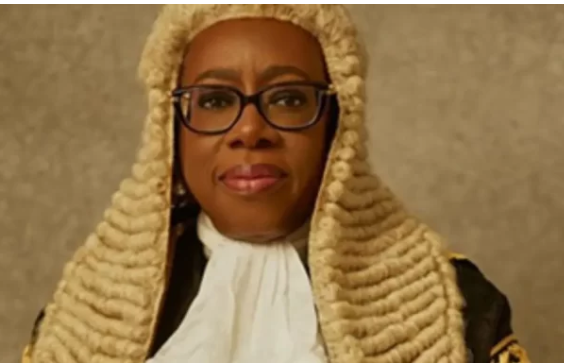
…By Ernest Ojukwu, SAN; Sam Erugo, SAN; Chidi Anselm Odinkalu; and; Mbasekei Martin Obono
Amid the greatest crisis of judicial authority since Nigeria’s independence in 1960, President Bola Ahmed Tinubu on 23 August 2024 swore in an Acting Chief Justice of Nigeria (CJN). For the new Chief Justice, this challenge is also an opportunity to articulate an agenda for reform that can restore public trust in the judiciary. Such an agenda must address the following:
(a) ensuring merit-based judicial appointments;
(b) addressing the problem of abuse of interim injunctions, ex-parte orders, and conflicting judgements;
(c) enhancing judicial discipline and accountability;
(d) addressing the crisis of political cases, election petitions, and judicialisation of politics; and
(e) reform of the Supreme Court.
1.JUDICIAL APPOINTMENTS*
The National Judicial Council (NJC), which oversees judicial appointments and is led by the CJN, has been severely criticised for mishandling judicial appointments. In 2020, for instance, it authorised 15 vacancies for the Federal Capital Territory High Court but nominated 34 for appointment.
The NJC has also been accused of retrenching its Procedural Rules for judicial appointments, thereby undermining merit-based appointments; compromising judicial integrity; and breeding a loss of confidence in the judiciary.
Against this background, it is of the utmost importance that the new CJN commits explicitly to a policy of restoring integrity and merit to judicial appointments through the introduction of transparent processes of advertisement of vacancies; nomination of candidates, interviews, short-listing, and selection.
2.CONFLICTING JUDGEMENTS AND ABUSE OF INTERIM INJUNCTIONS
Rule 3 (3.5) of the Judicial Code of Conduct provides that “a Judicial Officer must avoid the abuse of the power of issuing interim injunctions, ex parte.” Although the standards governing interim injunctions are very well established in Nigeria, these are often either disregarded or abused without consequences.
Equally, courts of co-ordinate jurisdiction routinely issue conflicting orders that seem almost calculated to damage the institution of the judiciary.
It is suggested that:
(a)Priority should be accorded to monitoring and reporting interim or ex parte orders by trial judges. There should also be clear consequences attached to a breach of the Judicial Code of Conduct.
(b)Judicial appraisals should be both quantitative and qualitative. Accordingly, they should proactively address evidence of ethical deficits in the work or output of judges, focusing on adherence to ethical guidelines and the quality of judicial decisions.
(c)There should be clear Practice Directions on the management of jurisdictional overlaps. The structure and scope of such overlaps should be discussed at the All Nigerian Judges Conference and the Practice Directions should be uniform across all the court systems in the country.
(d)The NJC should establish a central database or easily searchable platform for judges to share information on ongoing cases.
3.DISCIPLINE AND ACCOUNTABILITY
Preserving the dignity and integrity of the judiciary hinges on upholding discipline and accountability which is in turn essential for preserving the institutional authority of the judicial branch. If the judiciary lacks credibility, its authority suffers irredeemably.
Tragically, this eventuality may already be upon us. A recent survey by the United Nations Office of Drugs and Crime (UNODC) and the National Bureau of Statistics (NBS) finds the judiciary as the recipient of the highest per capita rates of bribery, ahead of both the Nigeria Police Force and the Nigerian Customs Service.
The damage that this does to the institutional credibility and authority of the judiciary is incalculable. To reverse this, it is suggested that:
(a)Disciplinary processes within the judiciary should be both prompt and decisive and dispositions should be calibrated to be proportionate to the seriousness of the misconduct found.
(b)Reports on disciplinary investigations by the NJC should routinely be transmitted to law enforcement agencies for follow-up.
(c)The CJN should initiate public consultation leading within six months to an announcement of measures designed to address the escalating patterns of judicial corruption as documented by the UNODC-NBS Corruption in Nigeria Report 2024.
4.ELECTION PETITIONS AND POLITICAL CASES
Political cases and election petitions now increasingly threaten the foundations of fairness on which the judicial system should be anchored. Of 248 judgements issued by the Supreme Court in the last judicial year, 74 or about 30% were “political cases.”
At a similar occasion only two years ago, his predecessor reported that the court’s portfolio of 269 appeals disposed of included 139 civil appeals, 102 criminal appeals, and 28 “political cases.”
The volume of election petitions has become an adverse charge on the credibility of the judiciary and an intolerable burden on both judges and non-political court users alike.
Underlying this burden is a judiciary that has installed itself as the sole dispenser of electoral mandates, with judges routinely substituting their views for the votes of the people contrary to the considered recommendations of two presidential panels on electoral reform led respectively by former Supreme Court Justice, Bolarinwa Babalakin in 1986 and by former Chief Justice Mohammed Lawal Uwais in 2008. It is suggested that:
(a)The Chief Justice should initiate reform of the election dispute resolution system to ensure the implementation of the Babalakin Commission and Uwais Panel recommendations concerning the need for Courts to respect and not subvert the will of the people in elections.
(b)The category of “political” cases should be reviewed and court systems should be encouraged to establish Alternative Dispute Resolution (ADR) mechanisms for political disputes.
(c)Consideration should be given to utilizing retired senior judges for the administration of election dispute resolution, so that serving judges may be preserved for regular court work.
(d)Election petitions should be disposed of before inauguration. The current practice whereby candidates are sworn in despite pending petitions against them facilitates judicial capture.
5.REFORMING THE SUPREME COURT
The Supreme Court is overburdened and its Justices are paying for this with their lives. In the 30 months from the beginning of 2021 to the middle of 2023, three Justices of the Supreme Court tragically died in service.
This period coincided with a revolt by Justices against the conditions of work and judicial well-being at the Supreme Court. These two developments underscore very clearly the urgent need for reform of the Supreme Court.
As the apex court, the Supreme Court should settle the most rarefied questions of law and legal policy in Nigeria.
Instead, it is burdened with inconsequential appeals and crippled by priority to political cases.
The result is a court with an ungovernable docket which also endangers the constitutional promise of fair trial “within a reasonable time.”
Structural and procedural enhancements needed to improve the efficiency and effectiveness of the Supreme Court will include:
(a)The National Assembly should review and re-enact the Supreme Court Act and amend the Constitution to limit the kinds of cases or appeals that can be introduced to the Supreme Court.
(b)The full digitization of the Supreme Court is overdue. Judgements should be publicly available on the day they are delivered and it should be possible to do filings at the court remotely.
(c)The Court needs to implement a structured system of judicial clerkships which would help to relieve Justices of some of the tedium of research and writing.
CONCLUSION
Far from being exhaustive, this five-point agenda only highlights pressing priorities for the incoming CJN. There remain important issues, such as the question of whether the NJC has continuing relevance; what should be its composition (if it continues to exist), and whether or not it should continue to co-exist as it presently does with the Federal Judicial Service Commission (FJSC).
As the African Commission on Human and Peoples’ Rights declared in 2009: “Courts need the trust of the people to maintain their authority and legitimacy. The credibility of the courts must not be weakened by the perception that they can be influenced by any external pressure.”
Success in judicial reform will depend on engaging a broad constituency of stakeholders, especially citizens, civil society, and court users. By fostering a collaborative approach to judicial reform, the CJN can construct the foundations for reclaiming public trust.
The measures suggested here can reverse inefficiencies; retrench renegades from the system; and reposition the judiciary as an institution fit for the changing landscape of a complex political economy.
By implementing these changes, the new CJN can rebuild public confidence; put the judiciary on track towards credibility; and guarantee a legacy that will be evergreen at the end of her tenure.
Prof. Ernest Ojukwu, SAN is former Deputy Director-General of the Nigerian Law School
Prof. Sam Erugo, SAN is former Dean of Law, Abia State University
Prof. Chidi Anselm Odinkalu, former Chair of Nigerian National Human Rights Commission teaches at the Fletcher School of Law and Diplomacy at Tufts University
Mbasekei Martin Obono, a lawyer, is Executive Director of TAP Nitiative, a Citizens’ Advocacy Organisation
News
NUJ-FCT Chairman Urges Journalists to Embrace Spirit Easter

News
SAD! SEC DG says “we can’t recover N1.3trn Nigerians lost to CBEX ponzi scheme”
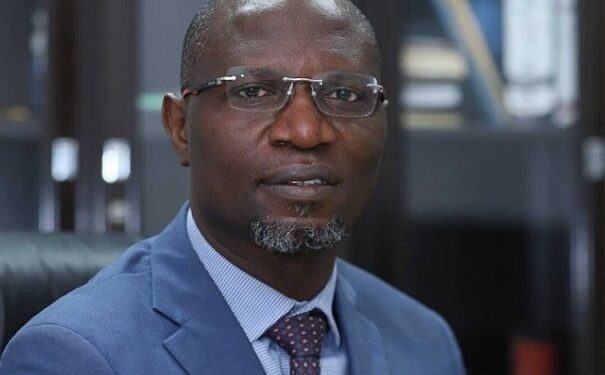
Dr Emomotimi Agama, the Director General of the Security and Exchange Commission (SEC), has explained that there is nothing the Commission can do to help victims of the CBEX scam recover their lost investments.
CBEX or Crypto Bridge Exchange, an unregistered online trading platform vanished last Monday with about N1.3 trillion invested by about 600,000 investors.
CBEX which had operated under ST Technologies International Ltd lured its victims with a 100 percent returns on investment after 30 days.
Asked by Sunday Vanguard if there is anything the Commission can do to help victims recover their money in part or in full, Dr Agama said: “There is nothing the Commission can do”.
He however expressed concern that Nigerians continued to invest in an unregistered digital entity without drawing the attention of the Commission.
“We are worried that this went on for long without anyone drawing our attention to it. That is why we are doing more enlightenment and asking people to come forward to report this for early detection.
How Nigerians can identify a Ponzi Scheme
He warned Nigerians against investing their money in Ponzi Schemes, saying such schemes make promises that are not real.
“You can identify a Ponzi Scheme when an entity makes offers that appear certainly untrue and are bogus. The definition we have in the ISA (Investments and Securities Act, 2025) clearly tells you that when an investment firm makes any promise that is almost totally unattainable, you will know that that is clearly a Ponzi scheme”.
SEC disclosed that preliminary investigations have revealed that CBEX engaged in promotional activities to create a false perception of legitimacy, in order to entice unsuspecting members of the public into investing monies, with the promise of implausibly high guaranteed returns within a short timeframe.
The Commission stated that CBEX, which also operates under the corporate identity of ST Technologies International Ltd, Smart Treasure/Super Technology, had held itself out as a digital asset-trading platform, offering high returns to investors in Nigeria.
According to the SEC, “The Commission hereby clarifies that neither CBEX nor its affiliates were granted registration by the Commission at any time to operate as a Digital Assets Exchange, solicit investments from the public or perform any other function within the Nigerian capital market.
The SEC emphasised that pursuant to the provisions of Section 196 of the Investments and Securities Act 2025, the Commission would collaborate with relevant law enforcement agencies to take appropriate enforcement action against the CBEX, its affiliates and promoters.
“The Commission uses this medium to remind the public to refrain from investing in or dealing with any entity offering unrealistic returns or employing similar recruitment-based investment models. Prospective investors are advised to verify the registration status of investment platforms via the Commission’s dedicated portal: www.sec.gov.ng/cmos before transacting with them”, the SEC added.
How I lost N500,000 in 7 days – Victim
Narrating how he got involved in the doomed platform, an Abuja based journalist told Sunday Vanguard that he invested N500,000 on April 4, 2025 with the hope of receiving N1 million after 30 days.
The journalist who requested not be named said: “I was involved for just seven days and lost N500,000 to the scam. I have a friend who has been pressuring me to invest on CBEX since December last year and I actually have been resisting because of my past experience with MMM.
“But he kept telling me and showing me how much he was making. So, I decided to give it a try and I got involved and finally transferred N500,000 on April 4. I was admitted into a Telegram group chat. Then the story began. The only luck I have is that my wife refused to be involved after I asked her to. I would have been in serious trouble by now.
“Immediately I got wind of troubles especially when people were locked out of the Telegram group, I tried to withdraw my money which had risen to N616,000 but I couldn’t”, he narrated.
News
Double tragedy: Father, three children, maid killed in Osun road crash
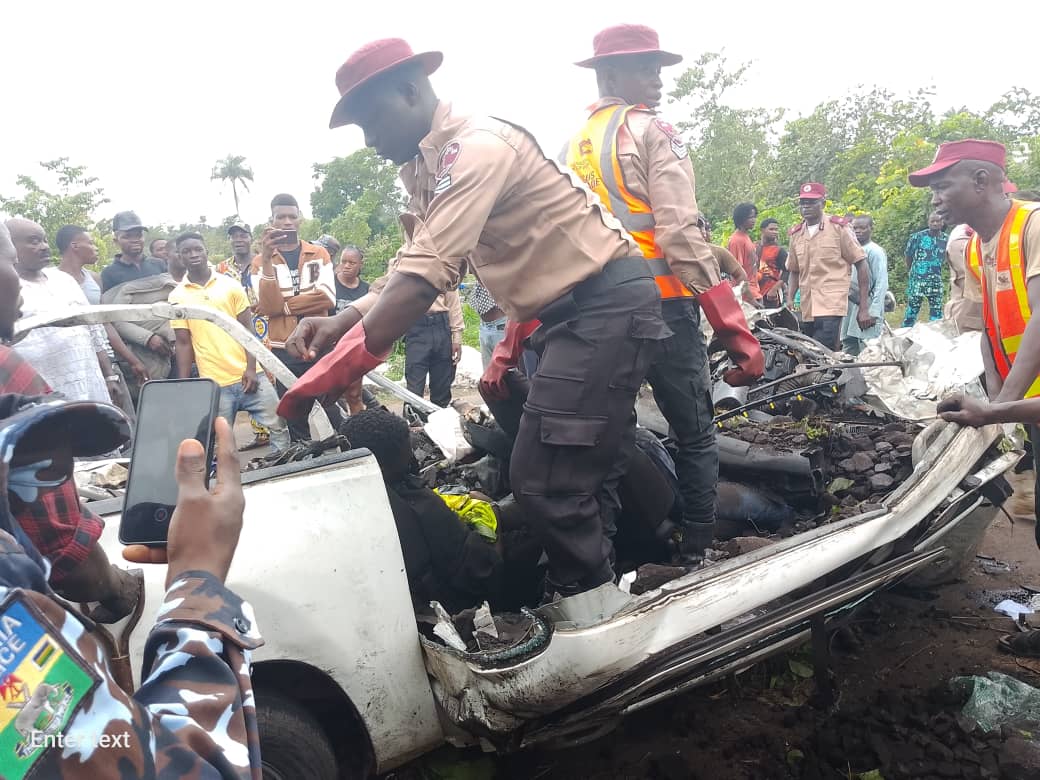
A truck driver driving on one way has killed a father and his three children along with their maid in a road accident along Ife-Ilesa express road in Osun State.
The incident, which occurred on Saturday morning, involving a Mark trailer and the family’s Toyota Hilux vehicle, left the wife critically injured.
A statement issued by Osun State sector command of the Federal Road Safety Corps, FRSC, Taofeek Tokunbo and made available to newsmen by the spokesperson, Agnes Ogungbemi, indicated that the accident was caused by the truck driver who drove on the wrong lane.
She added that the bodies of the deceased were taken to the Obafemi Awolowo University Teaching Hospital in Ile-Ife, while the injured woman was taken to a private hospital in Ipetumodu for treatment.
The statement added that the truck driver is presently in police custody for prosecution.
The FRSC sector commander, Taofeek Adeyemi, added that the cash of N508,900 and other items recovered from the scene were handed over to relatives of the deceased in the presence of police operatives.
He then warned road users to stop driving on wrong lanes and adhere strictly to road traffic rules to curb unnecessary death on the roads.
-
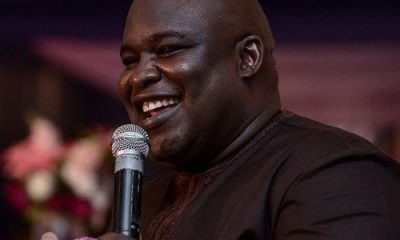
 News15 hours ago
News15 hours agoSAD! Popular Gospel singer, Big Bolaji is dead
-

 News22 hours ago
News22 hours agoINSECURITY: Armed herders attack reportedy leaves family of eight dead, nine others
-

 News23 hours ago
News23 hours agoCriminals in military uniform kill 12 at cockfight
-
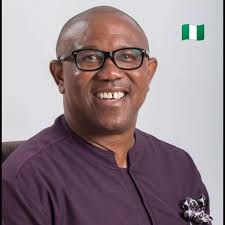
 News17 hours ago
News17 hours agoEASTER:Let’s use this period to pray for compassionate leaders -Obi
-
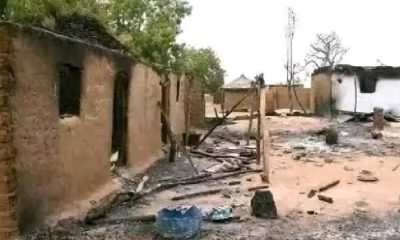
 News5 hours ago
News5 hours agoBLACK EASTER: Over 150 massacred in Plateau, Benue
-
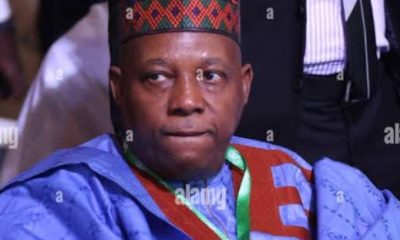
 News17 hours ago
News17 hours agoPresidency speaks on report that Shettima was denied access to presidential villa
-
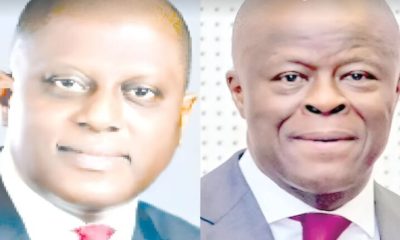
 News22 hours ago
News22 hours agoCBEX: Ponzi scheme promoters face 10 years jail term, N20m fine
-
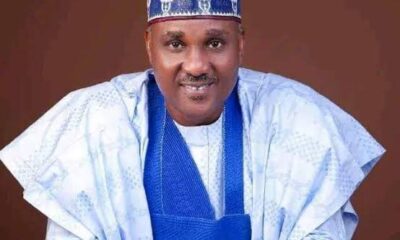
 News16 hours ago
News16 hours agoSpeaker Abbas Salutes Christians at Easter, Urges All To Emulate Selflessness of Jesus






